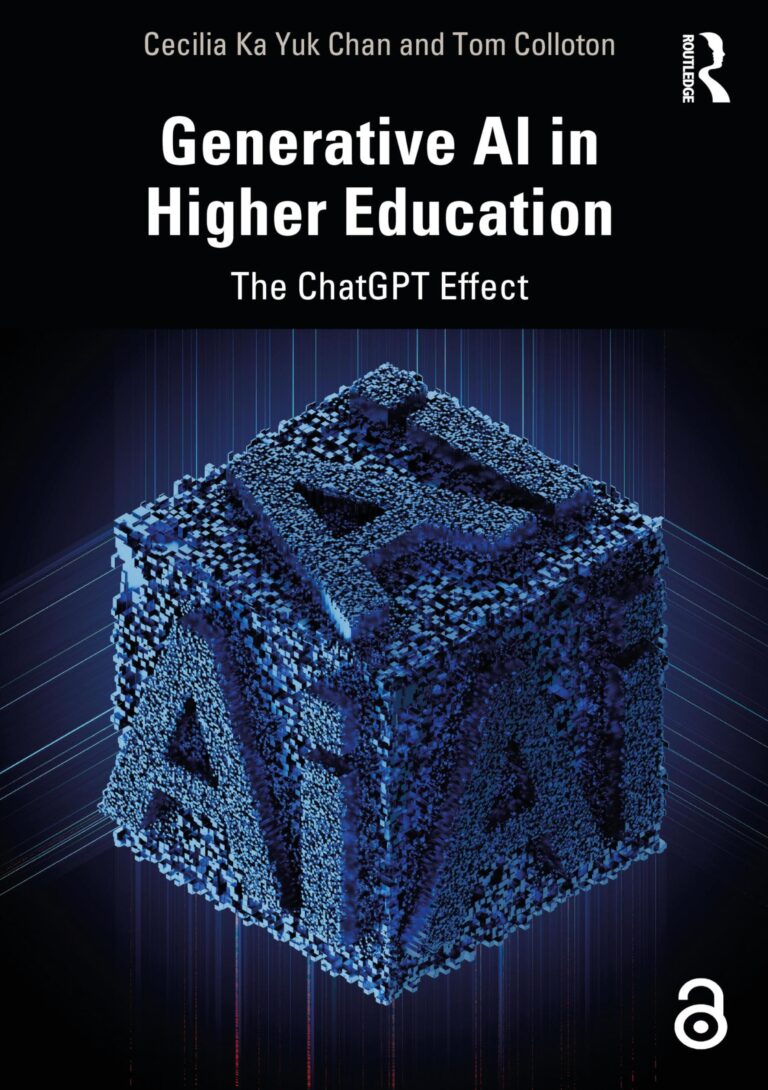As generative artificial intelligence (AI) continues to reshape industries worldwide, higher education institutions stand at a crossroads of opportunity and challenge. Deloitte’s latest report, “How Higher Education Can Realize the Potential of Generative AI,” explores the transformative impact of this cutting-edge technology on teaching, learning, and research. The analysis highlights strategic pathways for colleges and universities to harness generative AI’s capabilities, while addressing ethical considerations and infrastructural demands. As academia grapples with rapid digital evolution, Deloitte’s insights provide a timely roadmap for institutions aiming to stay ahead in an AI-driven future.
Harnessing Generative AI to Transform Learning and Teaching in Higher Education
Generative AI is revolutionizing pedagogical approaches and administrative workflows across universities, offering unprecedented opportunities to personalize education at scale. By integrating AI-driven adaptive learning platforms, educators can tailor content for diverse learner profiles, enhancing engagement and retention. These systems enable real-time feedback and dynamic assessment, freeing faculty from routine grading tasks and encouraging deeper interaction around critical thinking and creativity. Institutions embracing this technology report improvements in student satisfaction and academic outcomes, positioning themselves at the forefront of educational innovation.
Key areas impacted by generative AI include:
- Course Design: Automation of curriculum customization based on student performance data.
- Content Creation: Rapid generation of learning materials, simulations, and multilingual resources.
- Student Support: AI-powered chatbots providing 24/7 academic advising and mental health resources.
- Research Facilitation: Assisting faculty with literature synthesis and hypothesis generation.
| Function | Benefit | Example Application |
|---|---|---|
| Personalized Tutoring | Improves student comprehension | AI-driven study plans |
| Content Generation | Reduces faculty workload | Automated lecture notes |
| Administrative Automation | Streamlines enrolment & grading | AI-assisted data processing |
Addressing Ethical Challenges and Ensuring Responsible Use of AI Technologies
As generative AI continues to transform educational landscapes, institutions face a critical need to navigate the ethical implications surrounding data privacy, transparency, and bias mitigation. Ensuring responsible AI integration demands proactive governance frameworks, which prioritize student rights and foster trust. Universities are encouraged to develop comprehensive policies that address concerns such as algorithmic fairness and accountable usage, promoting an inclusive environment where AI acts as a tool for empowerment rather than exclusion.
Practical steps include implementing clear guidelines on data handling, rigorous bias audits, and continuous monitoring of AI system outputs. Collaboration with interdisciplinary ethics committees and leveraging AI literacy programs equips educators and learners alike to critically engage with these technologies. Below is a snapshot of essential elements for responsible AI adoption in higher education:
| Key Focus Area | Actionable Strategies | Expected Outcome |
|---|---|---|
| Data Privacy | Adopt encrypted data storage; limit data access | Safeguarded student information |
| Transparency | Publish AI decision-making criteria | Improved user trust and clarity |
| Bias Mitigation | Conduct regular algorithm audits | Fair and equitable AI results |
| Accountability | Establish AI ethics review boards | Responsible AI deployment |
Building AI-Ready Faculty and Students Through Comprehensive Training Programs
Institutions aiming to harness the transformative power of Generative AI must prioritize equipping both faculty and students with the necessary skills through well-rounded training initiatives. These programs should go beyond basic technical instruction, incorporating ethical considerations, practical applications, and collaboration techniques that prepare users to responsibly innovate with AI tools. By fostering AI literacy across the campus community, higher education creates an environment where experimentation is encouraged and interdisciplinary projects can thrive.
Effective training programs blend flexible learning formats—such as workshops, online modules, and hands-on labs—to accommodate diverse learning styles and schedules. They also emphasize continuous development, recognizing that AI technologies rapidly evolve. Below is an example framework outlining key components of an AI training curriculum designed for academic settings:
| Component | Focus Area | Delivery Method | Outcome |
|---|---|---|---|
| Foundations | AI concepts and history | Interactive Online Courses | Basic Understanding |
| Technical Skills | Model building & prompt engineering | Hands-on Labs | Practical Application |
| Ethics & Policy | Bias & responsible use guidelines | Seminars & Case Studies | Informed Decision-Making |
| Collaboration | Cross-disciplinary projects | Team Workshops | Innovative Problem-Solving |
- Continuous support: Establish mentorship and AI help desks to encourage ongoing engagement.
- Assessment and feedback: Regularly evaluate program impact to adapt content and methods.
- Integration: Embed AI literacy within existing curricula to normalize AI fluency.
Strategic Partnerships and Investments to Drive AI Innovation on Campus
Forging strategic alliances between universities, tech companies, and AI startups is accelerating the adoption of generative AI tools on campuses nationwide. These partnerships pool expertise and resources, enabling institutions to access cutting-edge algorithms and research infrastructures without prohibitive costs. Collaboration also ensures that curricula adapt swiftly to AI advancements, equipping students with relevant skills and hands-on experience through joint innovation labs and pilot programs.
Investment in AI innovation is equally crucial, with many universities allocating dedicated funds to foster interdisciplinary research and incubation hubs. The table below highlights leading initiatives exemplifying this approach, illustrating how diverse investment models — from venture capital involvement to government grants — are shaping the AI landscape in higher education.
| Institution | Investment Model | Key Initiative | Impact |
|---|---|---|---|
| State University | Industry Sponsorship | Generative AI Research Center | 200+ patents filed |
| Tech College | Government Grant | AI-Powered Learning Platform | Scaled to 10k+ students |
| City University | Venture Partnership | Startup Accelerator Program | 50+ AI startups launched |
- Cross-sector collaboration drives faster prototype-to-market cycles.
- Dedicated funding streams boost sustained research and talent retention.
- Shared data ecosystems enhance AI training and validation capabilities.
Concluding Remarks
As higher education institutions navigate the evolving landscape of technology, embracing the potential of generative AI stands as a pivotal opportunity to redefine teaching, learning, and research. Deloitte’s insights underscore that strategic integration, ethical considerations, and continuous innovation will be essential for colleges and universities aiming to harness AI’s full capabilities. The road ahead promises transformative advances, but success will depend on a balanced approach that prioritizes both technological progress and the core values of higher education.







